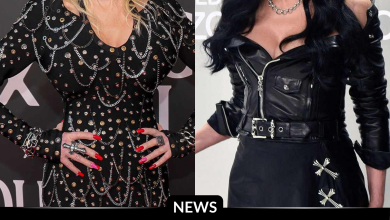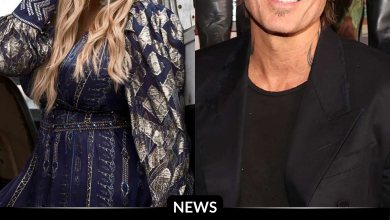A rumoured insult once again pushed a long-running pop-era narrative back into circulation this week — but the documented record tells a more complex story than a single line exchanged in a rehearsal room.
OPINION: This article may contain commentary which reflects the author's opinion.
According to a widely repeated piece of 2000s music gossip, Christina Aguilera and Fergie allegedly abandoned a planned duet after a pointed studio comment was made about vocal range. The quote — “your voice is stuck” — is often cited as the exact wording. There has never been a publicly filed document confirming a 50-page contract, and no verified statement from either camp connects to the alleged incident. What has been confirmed is this: both artists were operating in an environment where comparisons, chart competition, and scrutiny were relentless.
Why the rumour travelled so far
Aguilera’s career — from Genie in a Bottle, to the R&B pivot of Dirrty, through to her vocal-driven film work in Burlesque — has made her a reference point for technical singing. Media outlets often contrasted that with Fergie’s hybrid approach: melodic, rhythmic, stylistically playful, shaped by her Black Eyed Peas years and solo hits such as Fergalicious. Those contrasts — not conflict — were the foundation on which the rumour found oxygen.
In other words, the alleged “one-line jab” fit an existing media template. It was easy to repeat.
The documented moment that cuts in the other direction
There is public record of Fergie addressing Aguilera’s work — and it is the opposite of hostile.
In 2011, after Aguilera mixed up lyrics during her Super Bowl national anthem performance, Fergie spoke on the Dan Patrick radio show and defended her peer directly, calling her “one of the best singers of our time” and noting how high-pressure stadium settings can affect even seasoned performers. That quote is on the record — and it is supportive.
The lesson from this particular rumour
The tale of a signed duet agreement cancelled with a single punch-line sentence remains unverified. Yet it still resurfaces largely because the early-2000s pop era was built around comparison as sport — and comparison, repeated often enough, begins to look like evidence.
What is verifiable is this: both artists operated at the peak of mainstream attention during a decade when chart metrics, image strategy, and vocal analysis were treated like athletic stat lines.
The rumour remains an energetic footnote — the documented facts show professional respect at the moment when that pressure was most visible.



